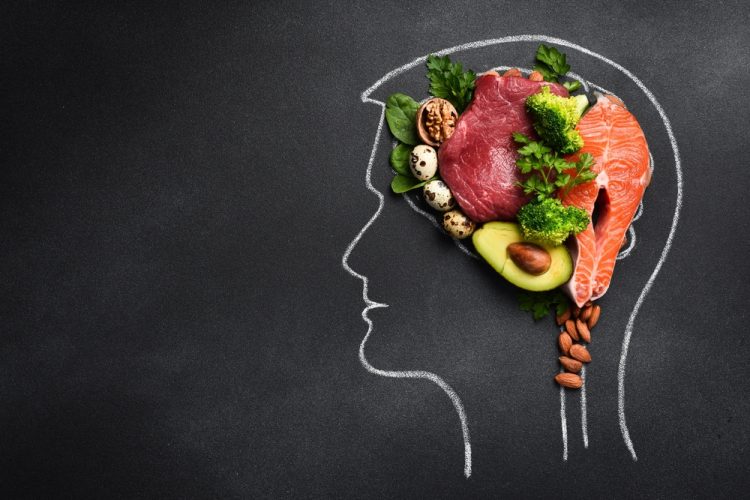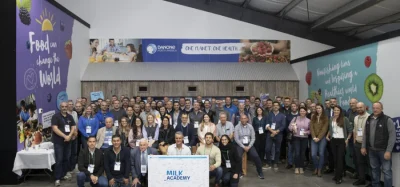It takes an education in systems thinking to mend a broken system
Posted: 21 May 2025 | Lise Colyer | No comments yet
Passionate advocate for sustainability and equitable nutrition for all, Lise Colyer, Exec Director, OmniAction, educates us on the missing lynchpin of system improvement.


Increasingly, Anglo-European culture views healthy, energetic and intellectually lively children as belonging to more financially secure social classes. Soaring child obesity rates are assumed to derive from the lifestyles of those less well off. At the heart of this disparity sits education, as discussed in UNESCO’s latest Global Education Monitoring report. Its title is Education and Nutrition: Learn to Eat Well, and it was produced alongside a team at the London School of Hygiene and Tropical Medicine.
The report says, “obesity rates have surged due to food production practices, the marketing of unhealthy dietary patterns, and sedentary lifestyles.” So it’s systemic. It takes an education in systems thinking, which is not widely available right now, to mend a broken system.
Fully understanding how much nutrition my money is buying me – or the nutritional value for money a food item represents – shouldn’t be difficult…
I work at an oversubscribed secondary school in the UK, where the fees are high. Within the curriculum, every Year 9 student (13/14-year-olds) studies the challenges of achieving zero hunger in the world while protecting the planet and has to give a presentation on it.
They also spend two weeks running a school café, handling the competing priorities of nutrition and finance. All this is within an everyday culture of healthy eating and physical and emotional wellbeing.
The children grow up understanding how to make healthy food choices for themselves and their families at home. At work, they’re equipped to take on leadership roles, steering through the complexities of sustainability in politics, business and academia.
All children should have access to these skills.
The UNESCO report makes it clear that food system transformation needs “major shifts in thinking” through better education, saying this informs better nutritional choices and fosters sustainable farming. Interdependently, “improved nutrition amplifies educational achievement”.
It highlights the importance of “dealing with the food industry, that has disproportionate power in promoting unhealthy, profitable food.” Training young people in managing this situation is essential.
Challenging the misinformation that attracts small, hard-earned incomes to high-margin, unhealthy choices is condemned as arrogant by food companies that profit from these choices. I know this from repeated first-hand experience of representing OmniAction in discussions about sustainability metrics. In those conversations, be they political or commercial, connecting the value of nutrition to food intake is unpopular – bizarrely so.
Fully understanding how much nutrition my money is buying me – or the nutritional value for money a food item represents – shouldn’t be difficult. I certainly shouldn’t need an elite education to get into the mindset of making choices this way.
Our economic system supports the perverse disinterest in the nutritional quality of food. Industry executives often claim they have a fiduciary duty to shareholders to maximise profit, regardless of the cost to society – which is picked up by taxpayers. This approach continues because taxpayers aren’t aware that, regardless of how affordable a food item might seem on the supermarket shelf, it is costing them far more in other ways.
The UK campaigning organisation Feedback has estimated that in the UK, taxpayers spent about £25 million with farmers in 2019 to grow sugar beet, rather than more healthy foods, even though the UK has access to 2.5 times more sugar than is safe for humans to eat. Taxpayers then foot the bill for tooth decay, diabetes and poor productivity due to ill health.
Farming sugar beet causes the loss of topsoil. The resulting flood damage and reduced ability to grow food then costs taxpayers £1.2 billion every year.
Without many of us knowing it or understanding how, we are funding chemical companies rather than poor farmers with our taxes.
Producing just one centimetre of topsoil takes between 200 and 400 years – it’s a precious natural resource. But British Sugar sells 200,000 tonnes a year of lost topsoil to construction and landscaping companies, earning up to £13.5 million.
So while taxpayers subsidise sugary food and drinks that make some companies wealthy, taxpayers must also then fund the unintended costs of too much sugar in the food system and damage to the environment.
The Organisation for Economic Co-operation and Development (OECD) says subsidies for fertilisers and fuel in agrifood – which costs us about $75 billion per year – “are among the most distortive market measures”. Without many of us knowing it or understanding how, we are funding chemical companies rather than poor farmers with our taxes.
The UNESCO report says, “To transform global food systems, research must expand to improve crop diversity and dietary quality. Investment is disproportionately low for crops better adapted to future climates, such as sweet potatoes and lentils.”
Sweet potatoes and lentils are among those good value food choices that get lost beneath misinformation to consumers.
In consultations on food data transparency to UK civil servants last year, OmniAction (unsuccessfully) proposed nutritional density food labelling, inspired by the work of Adam Drewnowski at the University of Washington in America and The European Food Information Council (EUFIC).
Essentially what the proposed label would tell us is:
- The calories per portion
- The amount of key nutrients per portion, ie, vitamin C and iron as well as say protein
- Importantly – the percentage of recommended daily intake of those nutrients.
This way you could aim for the highest amount of nutrition, in exchange for the lowest number of calories, at the lowest possible price. Less unnecessary consumption means less pressure on the environment. Thus, nutritional density can act as a proxy measure for sustainability.
Armed with making educated decisions with a label like this, you might decide to chop some chillies and pepper into a sauce for a hit of vitamin C, and save a few pounds by not buying a carton of orange juice. You could consume less while putting more nutrition in your body.
But politicians, voters, academics and shareholders probably need to be educated in systems thinking before they are able to progress logical and simple solutions like this.
Responding to recession in the 1992 US presidential election, Bill Clinton’s campaigners said, “It’s the economy, stupid”. In the face of our health, climate and cost of living crises, I’m plumping for a new mantra: It’s education, stupid.
Side note:
(The UK Government has published guidelines telling us what the recommended amount of nutrients are. And the World Health Organization has guidance as well. But few of us have the time to be doing all these calculations in the aisles of supermarkets.)
Meet the author


Lise Colyer
Lise Colyer is a co-founder and the Exec Director of OmniAction – a global community interest company. Its 600 members are sustainability experts working across all touch points of the food system. They contribute their intellectual property on a voluntary basis to generate a globally interoperable, North Star approach to standards. A former journalist, Lise was also the co-founder and Editorial Director of Quota.Media – an online magazine designed to unify academics, industry and policy makers behind better food system outcomes.
Related topics
Health & Nutrition, Sustainability, The consumer, World Food









